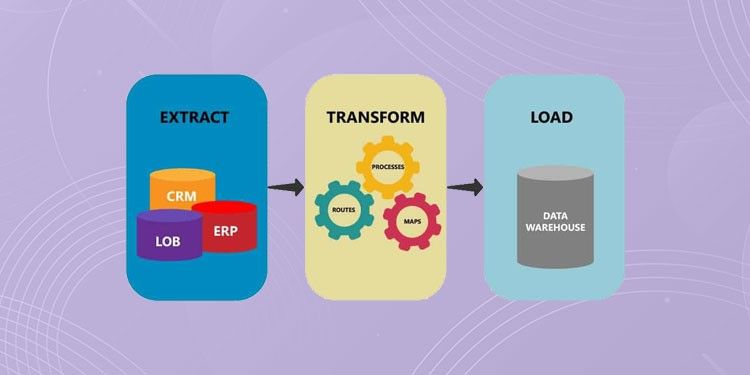
Why Is Cloud-Based ETL Better?

Best Cloud ETL Tools
1.Apache Airflow
An open-source system called Apache Airflow enables programmatic process authoring, scheduling, and tracking. It was created in Python and employs a top-down configuration method to set up processes as directed acyclic graphs (DAGs) of tasks.
2. Airbyte
The new open-source data integration tool Airbyte copies data from apps, APIs, and datasets to data warehouses, lakes, and other destinations while operating in the security of your cloud.
To help users keep track of their data pipelines and guarantee that data is moving efficiently, Airbyte offers tracking and alerting capabilities.
3. Fivetran
A cloud-based data integration tool called Fivetran helps businesses automate the transfer of data from various sources to a central data repository or another location.
4. Microsoft SQL Server Integration Services (SSIS)
Microsoft SQL Server's SSIS is software for creating high-performance data integration and workflow systems. SSIS provides an extensive range of integrated transform.
5. AWS Glue
Data transfer between data storage is made easy by Amazon Web Services (AWS) Glue, a completely controlled extract, transform, and load (ETL) solution. It offers a straightforward and scalable paradigm for structuring ETL operations, and it can instantly find and categorize data to facilitate searching and querying.
Why Is Cloud-Based ETL Better?
Cloud-based ETL is the ideal ETL option for most businesses because it provides several benefits.
Affordability
Compared to conventional on-premises ETL solutions, cloud-based ETL solutions are usually less costly. Organizations can escape the up-front expenses of hardware, software licenses, and upkeep by using cloud-based ETL. Instead, they use a pay-as-you-go model and only pay for the tools they actually use.
Scalability
Cloud-based ETL solutions adapt to evolving organizational requirements with scalability. A wide variety of processing resources are available from cloud companies, and they can be rapidly provided or de-provisioned as required. Because of this, businesses can easily manage high data volumes or sudden increases in their data management needs.
Usability
A graphical user interface is often provided by cloud based ETL systems, which makes it easier to create ETL processes. As a result, businesses can easily build and administer data pipelines without worrying about supporting technology.
Flexibility
Compared to on-premises options, cloud-based ETL solutions give greater flexibility. Organizations can rapidly spin up new environments without additional hardware or software and try new configurations.
Security
Data encryption, access controls, and threat monitoring are just a few of the strong security measures that cloud companies give. Therefore, businesses can rely on cloud based ETL tools to protect their data.